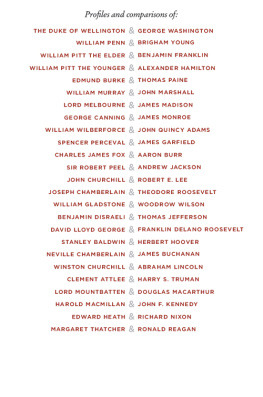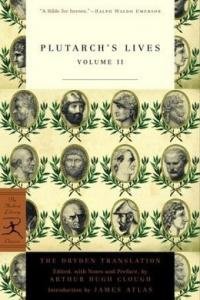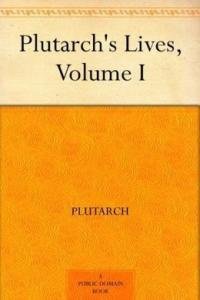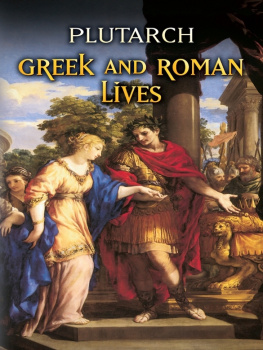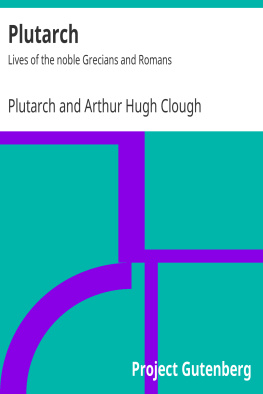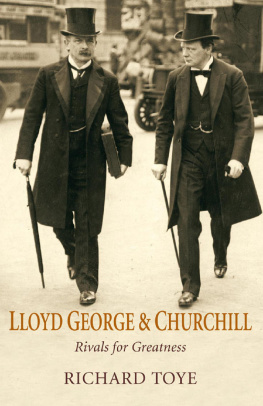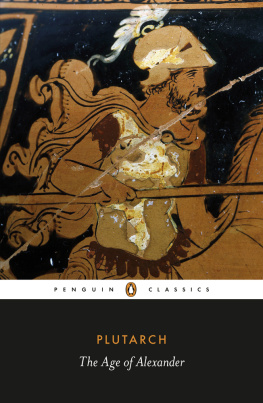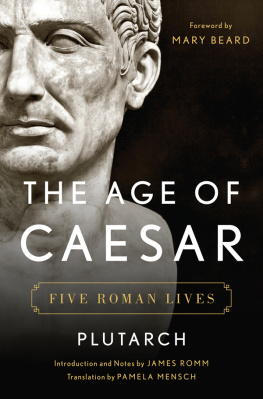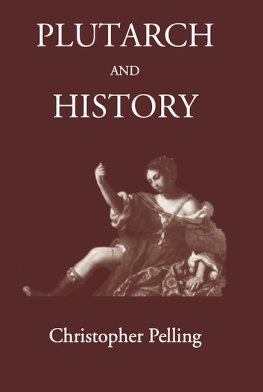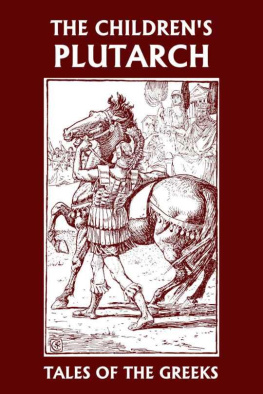This edition first published in hardcover in the United States and the
United Kingdom in 2016 by Overlook Duckworth, Peter Mayer Publishers, Inc.
N EW Y ORK
141 Wooster Street
New York, NY 10012
www.overlookpress.com
For bulk and special sales, please contact ,
or write us at the above address
L ONDON
30 Calvin Street
London E1 6NW
www.ducknet.co.uk
Copyright 2016 by Robert Lloyd George
Maps by Roddy Murray
All rights reserved. No part of this publication may be reproduced or transmitted in any form or by any means, electronic or mechanical, including photocopy, recording, or any information storage and retrieval system now known or to be invented, without permission in writing from the publisher, except by a reviewer who wishes to quote brief passages in connection with a review written for inclusion in a magazine, newspaper, or broadcast.
ISBN 978-1-4683-1411-3
A MODERN
PLUTARCH
COMPARISONS OF THE MOST
INFLUENTIAL MODERN STATESMEN
ROBERT LLOYD GEORGE
With 59 b&w images throughout and 4 maps
O ne of the most significant and enduring texts to have survived from the classical age is Lives of the Noble Greeks and Romans, written by Plutarch in the first century AD. In the work, the man known as the Father of Biography paired the most notable and powerful figures of the classical world, placing their lives and legacies next to each other, allowing the comparisons to reveal new truths about these famous men.
In A Modern Plutarch, Robert Lloyd George applies this model of biography to many of the most influential statesmen and stateswomen of American and British history. Lloyd George compares figures such as Edmund Burke, a prophet of modern conservatism, and Thomas Paine, a champion for the common man. He juxtaposes Winston Churchill and Abraham Lincoln, two of the greatest wartime leaders of the past 200 years, and Margaret Thatcher and Ronald Reagan, the first divisive, the latter popular. In doing so, he draws parallels between their lives and philosophies while revealing the traits that made them unique.
The essential primer on leadership and an inspiring account of exceptional lives, A Modern Plutarch breaths new life into historical biography and offers remarkable insight into some of the greatest minds of the modern era.
_________________________
Lucid, human, and original. In A Modern Plutarch, Robert Lloyd George illuminates the similarities and contrasts between the US and the UK, and the huge importance, in each, of private character in political life.
PHILIP MANSEL, AUTHOR OF LEVANT: SPLENDOUR AND CATASTROPHE ON THE MEDITERRANEAN
The East-West Pendulum
North South
David & Winston
For my ten children
Anglo-Americans all
Ricky, Alice, Julia, Alexander, Nicholas, Robert Owen,
David, Sophia, Elizabeth, and Isabella
We are the Greeks in this American Empire.
H AROLD M ACMILLAN
The world of man is best captured through the lives of the men who created history.
P LUTARCH
Read no history, only biography, for that is life without theory.
B ENJAMIN D ISRAELI
whatsoever things are true, whatsoever things are honest, whatsoever things are just whatsoever things are of good report; if there be any virtue, and if there be any praise, think on these things.
P HILIPPIANS 4:8

Having determined to write the life of Alexander and of Julius Caesar, the multitude of the deeds to be treated is so great that I shall make no other preface than to entreat the reader in case I do not tell of all the famous actions of these men, nor even speak exhaustively at all in each particular case, but in epitome for the most part, not to complain. For it is not Histories I am writing, but Lives; and the most glorious deeds do not always reveal mens virtues and vices, indeed a small thing, a word or jest often makes a greater revelation of character than battles when thousands fall: so, just as painters get the likenesses in their portraits from the face and the expression of the eyes, wherein the character shows itself, but make very little account of the other parts of the body, so I must be permitted to devote myself rather to the signs of the soul in men, and thereby show the life, leaving to others to write the battles and other great things they did.
Lives of the Noble Greeks and Romans
compared by Plutarch

I WAS INSPIRED AT AN EARLY AGE BY VISITING THE SMALL AND MODEST museum in North Wales dedicated to the memory of my great-grandfather David Lloyd George, prime minister from 1916 until 1922. In the two-room stone cottage where he was raised by his uncle, the village cobbler Richard Lloyd, there is scant furniture: a table, some chairs, one bed. Over the fireplace, however, there is a portrait of Abraham Lincoln, taken from a newspaper of the time and framed. It presided over the boyhood of Lloyd George and inspired him, in turn, to qualify as a lawyer and then stand for his office, first as a member of Parliament, then in Cabinet and ultimately as prime minister. The story of Lincoln, who had risen from log cabin to White House was, I believe, one of the first instances of an American exemplar inspiring a British statesman.
Since 1976, when I first came to the United States, I have been fascinated by American history, particularly that of the Founding Fathers, about whom we know so little in Britain. In 1979 I was at the New York Society of Security Analysts, standing at the window looking over Trinity Churchyard with Robert O. Anderson, Chairman of Atlantic Richfield, who was the largest landowner in the United States at the time. He looked down into the churchyard and said, There lies, I believe, the greatest of all the founding fathers. Excuse me, sir, who? I asked. Alexander Hamilton. I knew scarcely anything about Hamilton at the time but have since read everything I can lay my hands on, and realized he was one of the great thinkers and decisive figures in the early years of the republic. That year I made my first visits to Mount Vernon, Monticello and Hyde Park. Later, when I traveled to California at the end of 1979 and came to the Getty Roman villa in Malibu, based on the Pompeiian original, I thought: This is AD 79 as well as 1979; Hollywood is Pompeii, and America is the Roman Empire; and I am a visiting Old World historian just as that early biographer, the Greek Plutarch, was in Rome.
I have written this book for several reasons: first, for my children, who have a dual Anglo-American heritage, so that they may read, in Matthew Arnolds words, the best that has been said and done by the outstanding statesmen of Britain and America in the past two hundred years. I hope that they will be inspired by the protagonists I have selected. As Plutarch demonstrated in his Lives of the Noble Greeks and Romans, there are lessons to be learned from the lives of great men and a purpose to be discerned in them. Secondly, I have tried to write sketches of some of the American figures who are less well known to my fellow countrymen in Britain, many of whom are as ignorant of American history and its titans as I was.
Over the last forty years, I have read extensively in the biographies and studies of the American and British figures whom I have chosen. Two themes in particular emerged in writing about the 1770s especially and the founding of the American Republic: one was slavery and the attitudes of various leaders towards the peculiar institution. I have therefore included William Wilberforce, John Quincy Adams, Lord Mansfield, and John Marshall; but it also deeply involved Washington, Jefferson, Madison, Lincoln and Lee. The other theme is the French Revolution of 1789, as supporters as disparate as Jefferson and Fox on the one hand, and opponents like Burke, Hamilton and Pitt on the other, reacted to the Revolution and, subsequently, the Terror and Napoleonic dictatorship.

